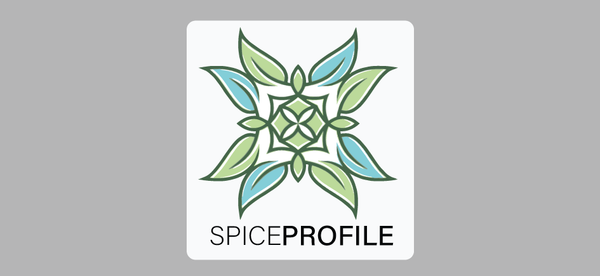Moringa leaves come from the Moringa oleifera tree. This tree is native to parts of Asia and Africa and is prized for its highly nutritious leaves which have been used for centuries in traditional medicine and food.
Moringa leaves are more popular in their powdered form because of their versatility and convenience. They are processed into powdered form by drying and crushing the leaves and make a convenient form to mix into teas, soups, smoothies etc.
In order to avail the best of the benefits of these nutritious leaves, it is important to learn about the right ways of using them. This post unveils the dos and don’ts of using moringa leaves powder and potential health risks associated with them.
Dos and Don’ts of Using Moringa Leaf Powder
Dos:
- Start with a small dose: We suggest beginning with 1/2 to 1 teaspoon of moringa powder per day. This will give your body enough time to adjust to it and then you can increase its quantity gradually to 1-2 teaspoons.
- Consult a healthcare provider: It is important to consult a healthcare provider before including moringa leaves powder in daily routine in certain health conditions. We recommend pregnant women, nursing mothers, and individuals with medical conditions to seek medical advice before consuming moringa powder on daily basis.
- Mix with food or drinks: Give a nutritious boost to smoothies, juices, soups, or salads by adding moringa powder. It is easy to blend with different recipes for tasteful consumption.
- Stay hydrated: Moringa powder is rich in fiber and nutrients and therefore, it may increase your need for water. We suggest drinking plenty of fluids throughout the day if you are consuming moringa powder to keep your body hydrated.
- Check for allergies: Moringa is mostly safe for consumption, but some people may experience allergic reactions. If you experience any kind of itching, swelling, or any other allergic reaction, we advise you to stop using it immediately.
- Use it regularly: For best results, it is important to take moringa powder consistently over time rather than sporadically. Consuming this herb on regular basis provides consistent supply of nutrients and improves overall health which is not possible on occasional consumption.
- Store in a cool, dry place: Always store moringa powder in an airtight container and keep it away from sunlight and moisture to preserve its nutrients.
Don’ts:
- Don’t overconsume: Excessive intake of moringa leaves can lead to digestive issues like nausea, diarrhea, or an upset stomach. Therefore, it is important to stick to the recommended dose of 1-2 teaspoons a day.
- Don’t consume on an empty stomach: Moringa powder can be highly potent and consuming it on empty stomach can cause discomfort. We suggest having moringa powder with food. Mix it with fruits or salads and you can also prepare a tea with it.
- Avoid during pregnancy without consultation: Some parts of moringa tree may cause uterine contraction and therefore, we suggest to not consume it during pregnancy without consulting with your doctor.
- Don’t rely on it as a sole nutrient source: While moringa powder is highly nutritious but it should not be a replacement of a well-balanced diet. Add it to your meals but do not replace your meals.
- Don’t use if spoiled: In case moringa powder has an off smell or it has clumped or there are signs of mold then it is time to discard it as consuming spoiled powder can be harmful for health.
It is important to be aware of these dos and don’ts of using moringa powder so that we can enjoy the amazing benefits of this herb.
Potential Health Risks Associated with Using Moringa Leaf Powder
Moringa leaves powder is packed with nutrition and numerous health benefits but there are some potential side effects associated with it that must always be kept in mind:
- Gastrointestinal Issues: If moringa powder is consumed in large amounts or is consumed on empty stomach, it can cause nausea, diarrhea, and stomach upset. This is because of the presence of high fiber content which may irritate the digestive system in some people.
- Blood Sugar and Blood Pressure Interference: Moringa leaves can reduce blood pressure and lower blood sugar, and this may pose a risk to individuals who are already taking medications for these conditions. This herb can cause dangerously low blood sugar or low blood pressure if not monitored closely.
- Interference with Thyroid Function: If consumed in large quantities, moringa leaves can also interfere with the functioning of thyroid gland and therefore, must not be consumed if one is taking thyroid medications, without consulting the doctor.
- Effect on Kidney and Liver: When consumed in large quantities, moringa leaves may place stress on liver and kidneys. This is because moringa leaves are known for their detoxifying properties and if one has an existing kidney or liver condition then they could adversely impact these organs. In such conditions, it is suggested to consult a healthcare provider before consuming moringa.
These are some of the potential health risks of moringa leaves that must be kept in mind. In order to enjoy the amazing benefits of moringa powder, it is important to consult a doctor before consuming this herb if you have any of the health conditions mentioned above.
At Spice Profile, we showcase pure and organic moringa leaves powder. Shop for our USDA certified moringa powder that has been sourced from India. High on nutrition and free from additives, our moringa powder makes a superfood to add to smoothies, teas, and salads and benefit your health with its nutrients!

